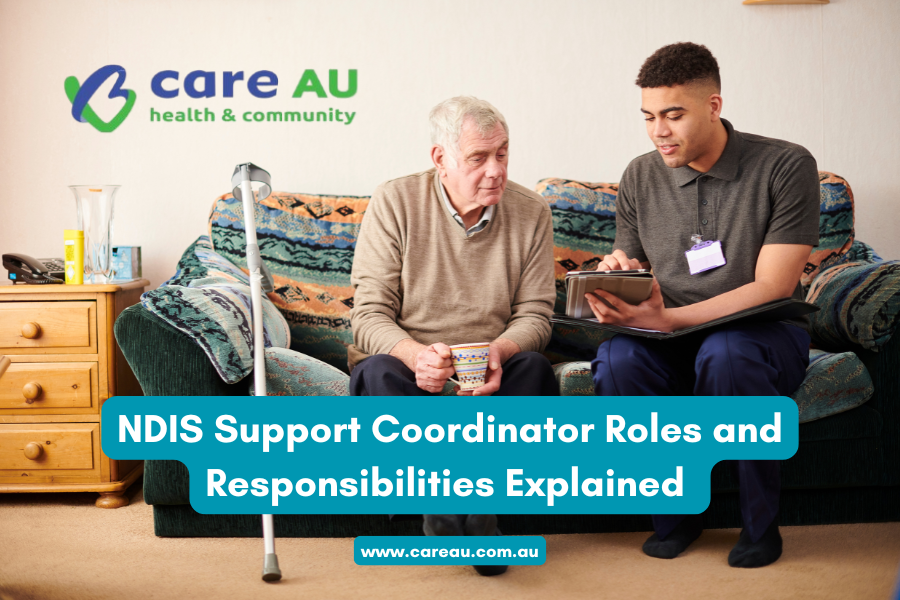Table of Contents
NDIS Support Coordinator Roles and Responsibilities Explained
Life with disability can be a challenge but with the right support, individuals can lead happier and more independent lives. The National Disability Insurance Scheme (NDIS) is employed to provide this assistance. Understanding the NDIS support coordinator roles and responsibilities can assist participants and families to maximize on their plans.
What Does an NDIS Support Coordinator Do?
A NDIS Support Coordinator can be compared to a mentor of the participants. Their primary responsibility is to ensure that people know their NDIS plan, find the appropriate service providers, and know how to manage their assistance. Unlike support workers, coordinators focus on organising, problem-solving, and building skills instead of giving direct personal care.
Roles of NDIS Support Coordinator
The roles of an NDIS support coordinator are more than just paperwork. They make sure every participant gets services that fit their personal needs. Coordinators act as mentors, planners, and advocates. They not only connect people with providers but also help them understand their rights and responsibilities under the NDIS.
Responsibilities of a Support Coordinator
NDIS Coordinator of Supports Duties
- Helping participants choose the right services.
- Setting up service agreements and bookings.
- Building participants’ skills to manage their plans more independently in the future.
- Assisting in resolving conflicts or issues with providers.
- Preparing participants for NDIS plan reviews.
NDIS Support Coordinator Job Description
Functions of Support Coordination in NDIS
- Linking participants to mainstream and community supports.
- Supporting decision-making and problem-solving.
- Encouraging self-advocacy and independence.
- Helping participants adapt to changes in their plan or circumstances.
NDIS Support Coordinator Tasks
- Setting up appointments with providers.
- Checking that services are delivered correctly.
- Providing reports to the NDIA when needed.
- Advising on budgeting and financial management.
- Supporting participants during transitions, such as moving homes or changing providers.
Duties of Support Coordinator NDIS
NDIS Support Coordination Explained
Instead of simply organizing services, support coordination enables participants to make their own decisions and allows them to gain confidence and self-sufficiency over time.
Why Support Coordination Matters
Support coordination is a significant difference in the life of NDIS participants. Lack of it, people might not be able to coordinate complicated plans or locate the appropriate services. Through a skilled coordinator, participants have the opportunity to concentrate on their objectives, whether that is employment, friendship, or health and wellbeing.
Conclusion
Need help getting started? Contact Care Au today. We’re happy to guide you through the process.

